Space
Sign up for our newsletter
We summarize the week's scientific breakthroughs every Thursday.
-
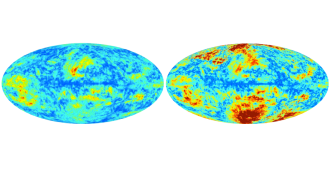 Cosmology
CosmologyDustup emerges over gravitational waves discovery
While cosmologists wait for data from Planck satellite, some worry that BICEP2 data actually come from our galaxy.
-
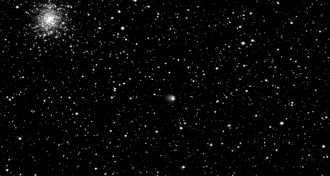 Planetary Science
Planetary ScienceRosetta spacecraft’s comet develops dusty envelope
Comet 67P/Churyumov-Gerasimenko, the target of ESA’s Rosetta mission, has developed a dust coma.
-
 Astronomy
AstronomySun’s sibling spotted
A nearby star may have come from the same birth cluster as the sun; learning how to find other solar siblings could point the way to their common origin.
-
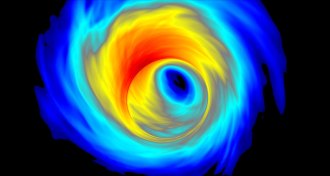 Cosmology
CosmologyThe mysterious boundary
A debate has arisen over whether an astronaut passing a black hole’s point of no return would get stretched to death or flash-fried. Resolving the controversy may lead to new insights about gravity and more.
By Andrew Grant -
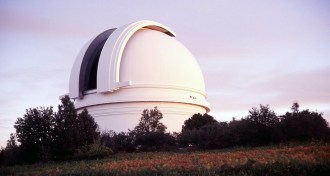 Cosmology
CosmologyRevamping the size of the universe
Despite new telescopes and technology, no one knows whether the universe is infinitely large or even if what has been observed is the only universe that exists.
-
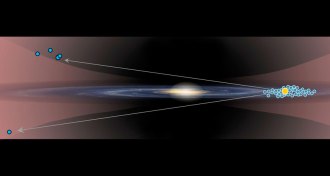 Astronomy
AstronomyMilky Way’s far side reveals some secrets
Variable stars provide first direct measurements of distance to the far side of the Milky Way.
-
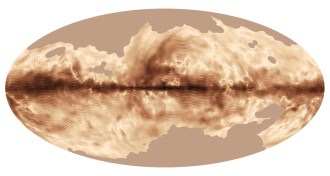 Astronomy
AstronomyMilky Way’s magnetic field mapped
The Planck telescope sees the galaxy’s magnetic field in polarized light bouncing off interstellar dust grains.
-
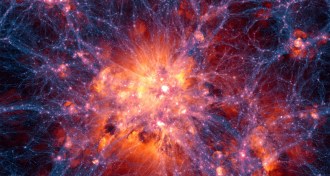 Cosmology
CosmologyUniverse re-created in computer simulation
The Illustris Project traces the detailed evolution of the universe starting from 12 million years after the Big Bang.
-
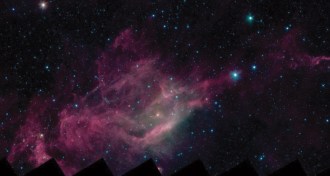 Cosmology
CosmologySee the sky in a different light
An interactive map lets you explore the galaxy with infrared light.
-
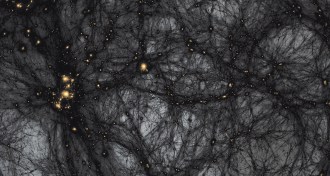 Astronomy
AstronomyIlluminating a dark universe
The film "Dark Universe" compresses a century of discovery into a crisp, comprehensible half hour.
-

-
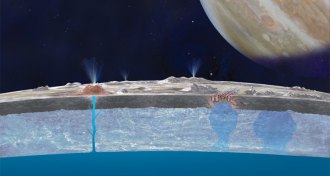 Planetary Science
Planetary ScienceThe ice of a distant moon
Jupiter’s moon Europa hides a liquid ocean, and conceivably life, under kilometers of ice. The challenge for engineers is how to penetrate that frozen barrier with technology that can be launched into space and operated remotely.
By Meghan Rosen